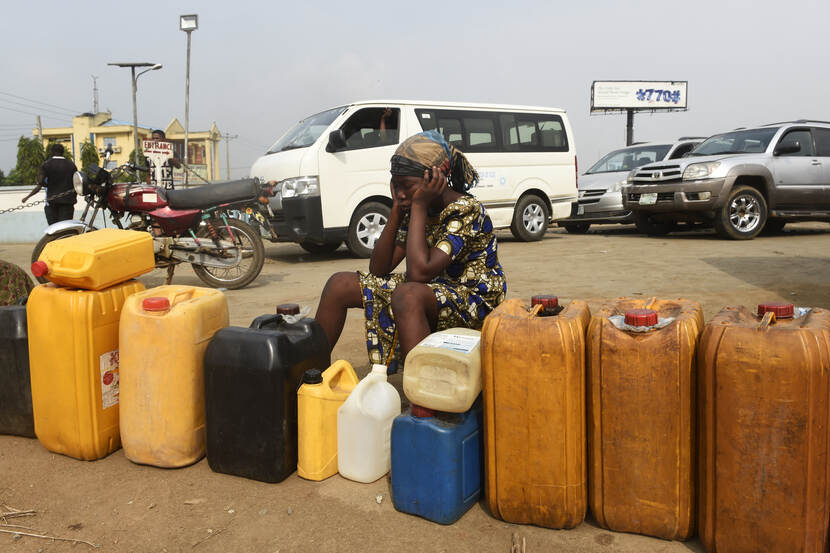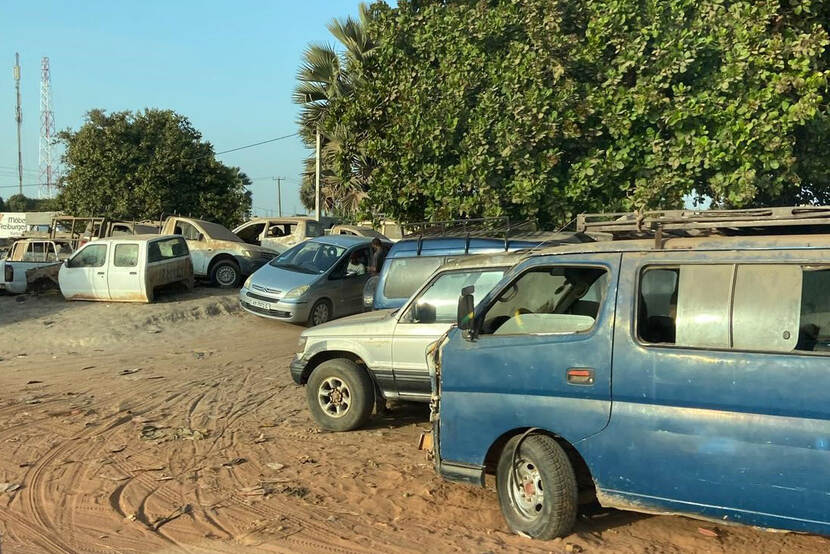Petrol composition harms people and the environment in Africa
Fuels produced in the Netherlands for the African market contain high levels of benzene, sulphur, and manganese. These substances are harmful to human health and pollute the environment. This is evident from the TNO study Petrol fuel quality and its effects on the vehicle technology and the environment. The study was commissioned by the Human Environment and Transport Inspectorate (Inspectie Leefomgeving en Transport, ILT). This working method is in conflict with the duty of care for substances and mixtures laid down in the Environmental Management Act. The ILT is calling the companies operating in the Netherlands to account for this, to ensure that in the future, fuels are exported that are in line with the European quality requirements. The aim is to prevent further damage to the environment and health.

For the ILT, TNO studied the consequences of the use of high-sulphur, high-benzene petrol containing manganese for humans and the environment. The foundation for the study was the 2018 ILT report on automotive fuels destined for Africa. The report shows the effects of using fuels – unsuitable by European standards – exported to Africa. Due to the composition of the fuels, vehicle catalysts and particulate filters cannot filter out the toxic substances and soon fail completely. As a result, the ‘unfiltered’ emissions increase even further. These petrols are not allowed on the European market because of the health risks, but they are still allowed in West Africa, where many old vehicles, discarded in Europe, are driving around.
Inspector General Jan van den Bos: “The findings are worrisome, because they reveal the full extent of the damage to air quality and public health. The question is whether market players will take the initiative to develop cleaner fuels on their own. Consequently, from the point of view of producer responsibility, we are in dialogue with the producers.”
Research
In 2018 already, the ILT published the investigation into the quality of fuels produced in the Netherlands and exported to (West) African countries. The conclusion was that fuel traders are making the most of the wider legal standards of the countries concerned. TNO’s follow-up research this year shows the actual consequences of using these fuels.

Old cars and vans to Africa
Last year, the inspectorate published a second report showing that not only the fuels are of poor quality, but also the cars and vans transported from Dutch ports to Africa. The vehicles have a low emission standard, usually an invalid roadworthiness certificate, and often, there are already problems with the catalysts or particulate filter. More than 80% of the vehicles exported are no longer welcome in 15 West African countries as of January 1, 2021. These countries are closing their borders to these vehicles and are imposing other requirements on the quality of the fuels. This will improve the air quality in these countries.
Action
The ILT is now investigating whether the fuel companies operating in the Netherlands have adjusted their ‘just-fit-for-purpose’ business practices since 2018. In addition, the ILT is also looking at what the chemical, refinery, and trading companies will do with the knowledge and results from this new report. The ILT calls the companies to account for their responsibility in the light of the Environmental Management Act. The aim is to encourage companies operating in the Netherlands to export fuels of European quality. The ILT also shares the conclusions from the overall picture of the 3 reports with other parties, including the Public Prosecution Department and the Ministry of Infrastructure and Water Management. State Secretary Van Veldhoven will share the report with the Dutch House of Representatives.